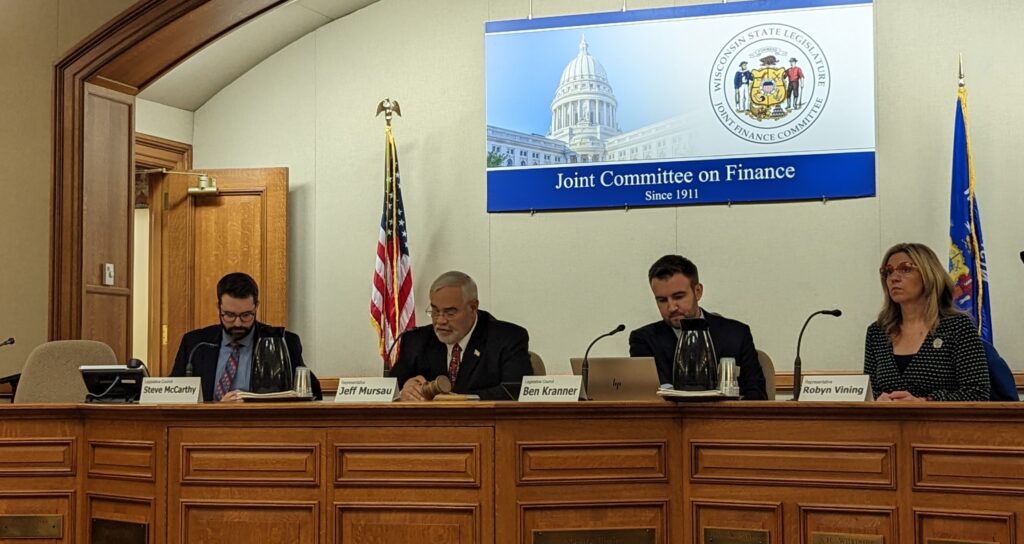Committee Advances Native American Education Bills
Joint Finance Committee will decide their fate. GOP legislator promises to champion bills.

Wisconsin’s State-Tribal Relations special committee unanimously voted to advance five bills Tuesday. Photo by Baylor Spears/Wisconsin Examiner.
Wisconsin’s State-Tribal Relations special committee unanimously voted to advance a bill that would update a 1989 law that requires primary and secondary public schools to teach students about the history, culture and treaty rights of Wisconsin’s Native Americans Tuesday.
The committee will recommend the bill, along with four others that were unanimously advanced, for consideration in the new legislative session that begins in January.
Act 31, also called American Indian Studies in Wisconsin, was first signed into law by former Gov. Tommy Thompson. It requires public school districts to provide instruction on the history, culture and tribal sovereignty of the state’s federally recognized Native American nations and tribal communities.
Concerns about how the 33-year-old law is implemented across the state have arisen in recent years, including inconsistencies in how the curriculum is taught across the state.
The new bill, which is a combination of multiple bills discussed in previous sessions, would incrementally address some of the issues by directing the state schools superintendent to oversee the development and revising of academic standards. It would also instruct the Department of Public Instruction (DPI) to incorporate Native American studies into state model academic standards.
School districts, under the approved language, would not be required to use the standards, but would have the option of using them as a guide.
If the bill is taken up in the new session and passed into law, DPI would need to develop and publish the materials on its website by Sept. 1, 2024. Beginning in the 2024-25 school year, school boards would need to provide the materials to school board members, administrators, principals and social studies teachers annually.
The committee also voted to advance four other bills Tuesday including one prohibiting school boards and charter schools from preventing students from wearing tribal regalia to a graduation ceremony or to school-sponsored events, the addition of Indigenous People’s Day as an observed holiday in addition to Columbus Day and a provision allowing tribal governments to copy a certified copy of a vital record for administrative use.
The last bill to pass the committee Tuesday would give tribes a say over which applicants receive a lifetime license that permits them to teach American Indian languages associated with the tribe. Under this bill, DPI would still issue the language licenses, but would be prohibited from doing so without the tribe’s approval.
The committee will recommend the bills to the 22-member Joint Legislative Committee, whose membership is not set yet, in the new session, in January. The Joint Legislative Committee will decide whether to introduce the bills on the floor.
“[During redistricting], I picked up a portion of Jackson county, which has the Ho-Chunk nation, so I wanted to be on this committee to learn more about tribal issues and I’m just delighted with the bills that we passed and look forward to moving them through the state Legislature,” Rep. Donna Rozar (R-Marshfield) said.
Committee advances Native American education bills was originally published by Wisconsin Examiner





















